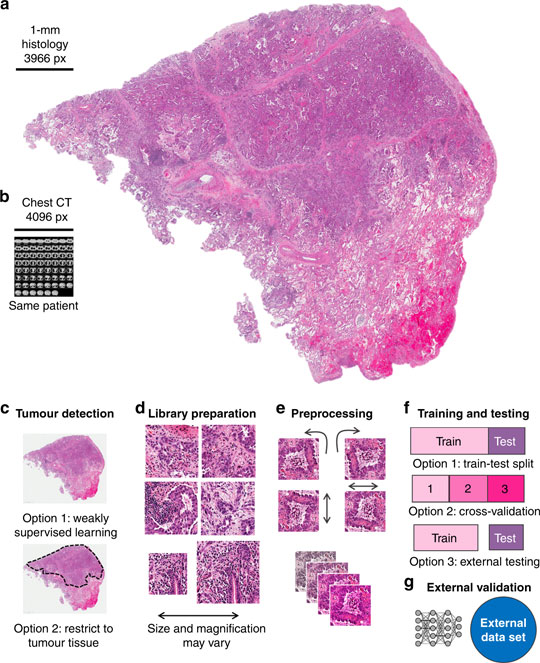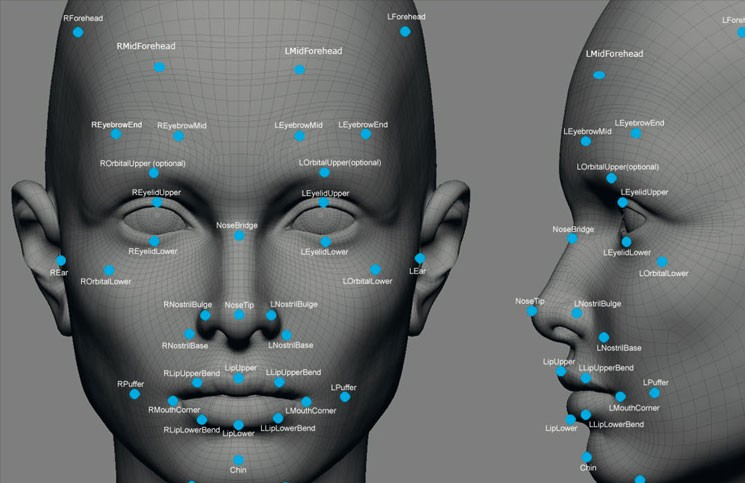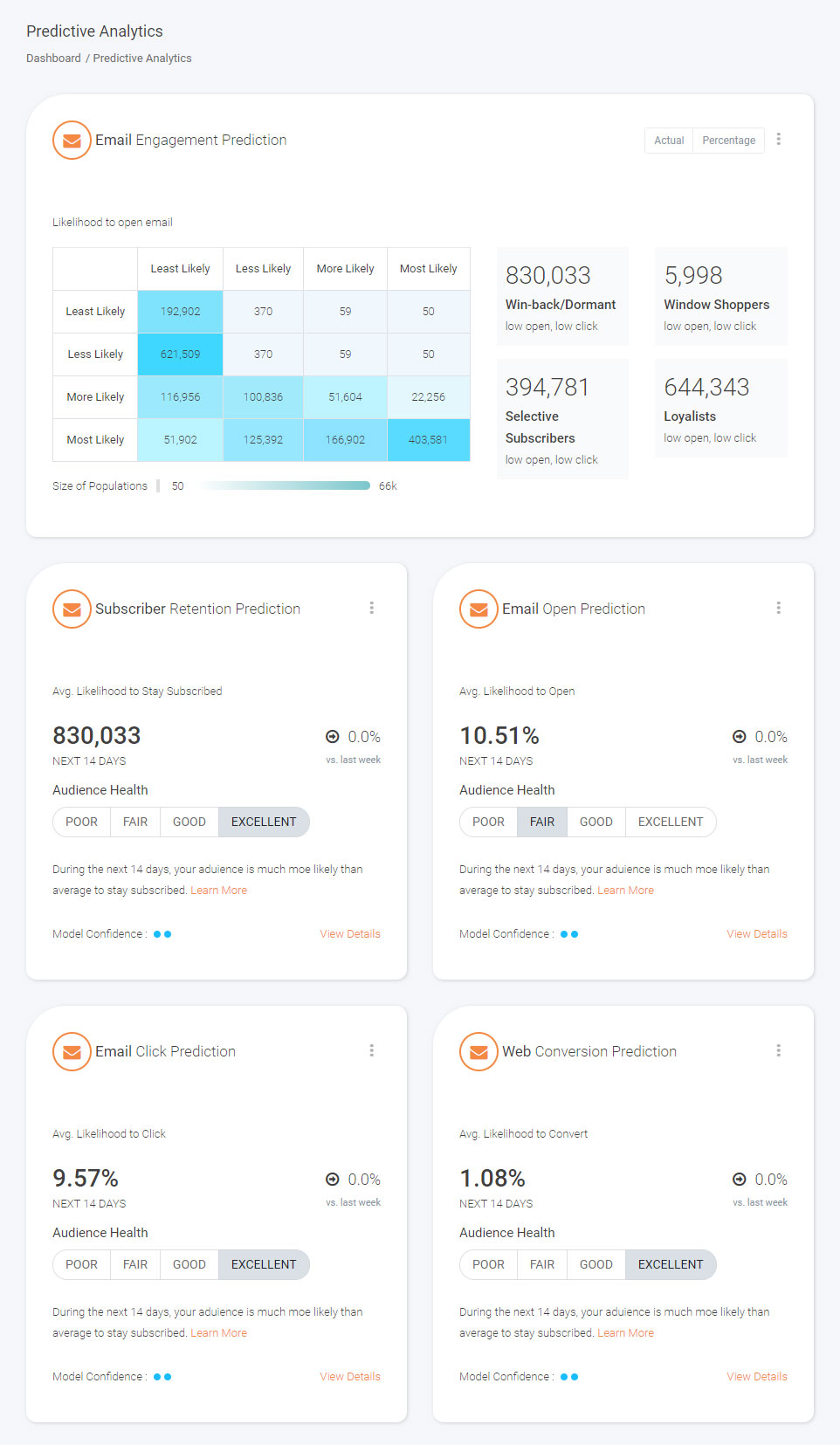Why Artificial Intelligence?
Artificial intelligence (AI) is fundamentally changing the way business is conducted. It’s not just a technological development: It’s a seismic shift. Across the globe, existing social, political, and economic landscapes are being radically reshaped by the tools and applications AI has made possible. It has the potential to be both a great leveler and a decisive difference-maker.
The truth is, many organizations don’t have a choice anymore. They either adapt to the new realities that AI has created or risk getting left far, far behind. In the early years of AI, only the world’s most advanced organizations possessed the funds and institutional knowledge required to implement AI within their operations. These days, however, advances in AI are being made every single day.
Everyone from supranational governmental organizations to small mom-and-pop shops can make use of the seemingly infinite potential of AI and machine learning. There are hundreds, if not thousands, of ways AI can fit into your organization’s strategy. Broadly speaking, however, Harvard Business Review breaks the benefits of AI for business into three categories:
Automating Processes
This is the most common application of AI within both private and public sector organizations. These types of AI applications are generally referred to as robotic process automation(RPA) technologies. Speeding up processes and increasing organizational efficiency by automating menial, time-consuming procedures like data entry, security protocols, logistical planning, and more, has clear benefits. Just how much time, effort, and money would automating these types of tasks save your organization? Get in touch, and we’ll find out.
Gaining Insights
This is what Harvard Business Review calls “analytics on steroids.” AI is able to sift through massive data sets in a matter of seconds to assess relationships between data points, analyze trends, predict future outcomes, and more. Discover hiccups and inefficiencies in your supply chain, unravel hidden stories hidden in sales numbers, predict consumer habits, increase employee efficiency - the possibilities are endless.
Exceptional Engagement
Employees and clients combine to form the lifeblood of your organization. Increasing happiness and satisfaction with both groups can have incredibly important implications. Particularly for large organizations with upwards of hundreds of employees and stakeholders, AI-based engagement applications can be highly beneficial. Things like internal sites that connect employees to important HR information and institutional wisdom, as well as customized communication platforms that foster more expedient interactions, are just but a small sample of how AI can help you increase engagement.
How Can AI Supercharge Your Organization?
The benefits of AI for both business and non-profits are seemingly limitless. Whatever your industry or area of operation, there is no doubt a stunningly powerful application of AI that competing organizations are already using. So, how can AI benefit your organization?
Big Data, Building Data pipelines, data warehousing, structuring and Analytics
AI makes the massive data sets possible to analyze and explore this valuable information on quick, efficient time horizons.
Natural Language processing
These days, however, language is not the exclusive domain of humans. Advances in AI have increasingly reduced the barriers to communication that exist between humans and computers.
Image and facial recognition
Facial recognition is a technology that is capable of recognizing a person based on their face. It employs machine learning algorithms which find, capture, store and analyse facial features in order to match them with images of individuals in a pre-existing database.
Deep Learning applications
Deep learning is a type of machine learning that builds upon advances in neural networks to create highly powerful and complex algorithms that can be applied to a wide variety of problems and challenges.
Task and workflow Automation
Automation is kind of machine programmed to carried out a routine job. It refers to the application of Artificial Intelligence and related new technologies, including Computer Vision, Cognitive automation and Machine Learning to Robotic Process Automation.
Inventory Optimization and fulfillment prediction by location
The main formulaic methods for successful inventory forecasting are trend, graphical, qualitative and quantitative. The expert tasked with forecasting chooses the best method based on known stocking issues, personal insights, feedback from sales, customer input, mathematical analysis and market research.
Human activity recognition
Human activity recognition (HAR) aims to recognize activities from a series of observations on the actions of subjects and the environmental conditions. The vision-based HAR research is the basis of many applications including video surveillance, health care, and human-computer interaction (HCI).
Speech Recognition
It allows documents to be created faster than a person can type. It can enable those with limited use of their hands to work with computers, using voice commands instead of typing, it can be used in court reporting, creating print-ready dictation, in telephony applications and many more suitable places.
Chat-bot automation with NLP and bot-based mood recognition, advising
A Chat-bot can be defined as an AI based computer program that simulates human conversations. Bots interpret the user intent, process their requests, and give prompt relevant answers. Bots can communicate through voice as well as text and can be deployed across websites, applications, and messaging channels.
Predictive analytics
Predictive Analytics is the use of mathematical and statistical methods, including artificial intelligence and machine learning, to predict the value or status of something of interest.
Technology Expertise
We’ve got the knowledge and expertise to help your organization unleash it’s full potential using the power of AI. There’s no one-size-fits-all approach when it comes to building an AI strategy. That’s why we’re specialists in dozens of leading languages, programs, systems, methods, and more that the world’s foremost organizations are using to create AI-fueled change in their fields:
Python
Amazon Web Services
Apache Spark
Microsoft Azure
Google Cloud
MongoDB
Microsoft Access
Amazon Quicksight
SPSS
Tensor Flow
Apache Hadoop
Kubernetes
Apache Cassandra
Microstrategy
Tableau
Power BI
R Programming
SAS
The Goals of AI Strategies
Problem-solving, Knowledge representation, Planning, Learning Social Intelligence. The overall goal of AI is to create technologies that can incorporate the above goals and create an intelligent machine that can help us work efficiently, make decisions faster, and improve security.
To Create Expert Systems
Expert systems are any assortment of procedures, protocols, and frameworks that, when acting together, exhibit intelligent behavior, such as learning, demonstrating ideas, explaining concepts, and advising users.
To Implement Human Intelligence in Machines
AI creates tools that understand, think, learn, and behave like humans.
To Build Heuristic Models
AI plays a crucial role in strategic games such as chess, poker, and tic-tac-toe, where machines can think of a large number of possible positions based on heuristic knowledge. When built upon, these models have powerful real-world applications.
To Process Natural Language
AI has rendered it possible to interact with a computer that understands natural language spoken by humans, eliminating the largest obstacle to communication between man and machine.
To Structure Vision Systems
Vision systems understand, interpret, and comprehend visual inputs given to the computer. For example:
- A spy plane takes photographs that are used to figure out spatial information
- Doctors use a clinical vision system to diagnose their patients
- Police use computer software that can recognize the face of a criminal based off of an archived portrait made by a forensic artist.
To Enable Speech Recognition
Some intelligent systems are capable of hearing and comprehending language on more nuanced levels. These systems can process the handling of such minute details as different accents, slang words, noises in the background, changes in a human’s voice due to cold, and more.
To Enable Handwriting Recognition
Handwriting recognition software reads text written on paper by a pen or on screen by a stylus. It can recognize the shapes of the letters and convert them into editable text.

Our Experience
At Fair Pattern, we have experience helping clients implement AI solutions in a variety of fields and industries.
AI in Healthcare
In the last five to ten years, AI has become integral to the healthcare industry, and it will continue to have a significant impact on this industry well into the future. Medicine is an area where AI has incisive, immediate, and impactful outcomes. Healthcare organizations are applying AI to make faster, more accurate diagnoses than humans. AI can also help doctors monitor patients more closely by alerting them when patients are in critical condition or at risk of experiencing worsened symptoms.
AI in Finance
AI is a perfect match for the finance industry. The world’s leading financial institutions are implementing automation, chatbots, adaptive intelligence, algorithm trading, and machine learning, among other applications, into their systems and processes. This makes for more informed, more profitable decision-making.
AI in Data Security
Data security is crucial for every organization. With the number of cyber-attacks rapidly increasing, utilizing AI to protect your digital assets is more important than ever. One example of AI applications which is used to determine software bugs and predict cyber-attacks before they happen.
AI in Social Media
Social media sites such as Facebook, Twitter, and Snapchat contain billions of user profiles, all of which need to be stored and managed in a very efficient way. AI can organize massive amounts of information, as well as analyze lots of data to identify the latest trends, hashtags, and user requirements.
AI in Travel & Transport
AI is becoming highly in-demand for organizations in the travel industry. AI is capable of automating various cumbersome logistical tasks, including everything from making travel arrangements and suggesting hotels and flights, to working with logistics data to suggest the best ways to reach markets.
AI in Automotive Industry
Some automotive industry organizations are using AI to provide users with virtual assistants to achieve better performance. For example, Tesla has introduced TeslaBot, an intelligent AI-powered virtual assistant that streamlines in-car experiences. AI is also enabling self-driving cars to become safer and more prevalent.
AI in Robotics
AI plays a remarkable role in the field of robotics. General robots are programmed such that they can perform repetitive tasks. With the help of AI, though, we can create intelligent robots able to perform tasks based on their own experiences and learned-knowledge, all without being pre-programmed.
AI in Entertainment
We all use AI-based applications in our daily lives. For many people, this most frequently occurs when they use entertainment services such as Netflix and Amazon Prime. With the help of ML/AI algorithms, these services are able to more accurately predict programs and shows, as well as understand viewing trends to create more enjoyable content.
AI in Agriculture
Agriculture is an industry that requires various resources, not the least of which being labor, money, and time. Nowadays, agriculture is becoming increasingly digital, with much planning and in-season management being fueled by AI. AI is also being used in the form of agricultural robots, crop monitoring systems, and predictive modeling algorithms.
AI in E-commerce
AI is providing a competitive edge to businesses in e-commerce. It’s helping shoppers to discover better product recommendations based on things like style, size, color, brand, and season. It’s also giving e-commerce retailers insight into consumer trends and habits.
AI in Education
AI has enormous potential in the field of education. It automates grading so that teachers have more time to teach. AI chat-bots can also communicate with students, acting as an on-demand teaching assistant. In the future, AI might also be able to work as a personal virtual tutor for students, making learning accessible at any time and any place.

Advantages of Artificial Intelligence

High Accuracy with less errors
AI machines or systems are prone to less errors and high accuracy as it takes decisions as per pre-experience or information.
High-Speed
AI systems can be of very high-speed and fast-decision making, because of that AI systems can beat a chess champion in the Chess game.
High reliability
AI machines are highly reliable and can perform the same action multiple times with high accuracy.
Useful for risky areas
AI machines can be helpful in situations such as defusing a bomb, exploring the ocean floor, where employing a human can be risky.
Digital Assistant
AI can be very useful to provide digital assistance to the users such as AI technology is currently used by various E-commerce websites to show the products as per customer requirement.
Useful as a public utility
AI can be very useful for public utilities such as a self-driving car which can make our journey safer and hassle-free, facial recognition for security purposes, Natural language processing to communicate with the human in human-language, etc.
